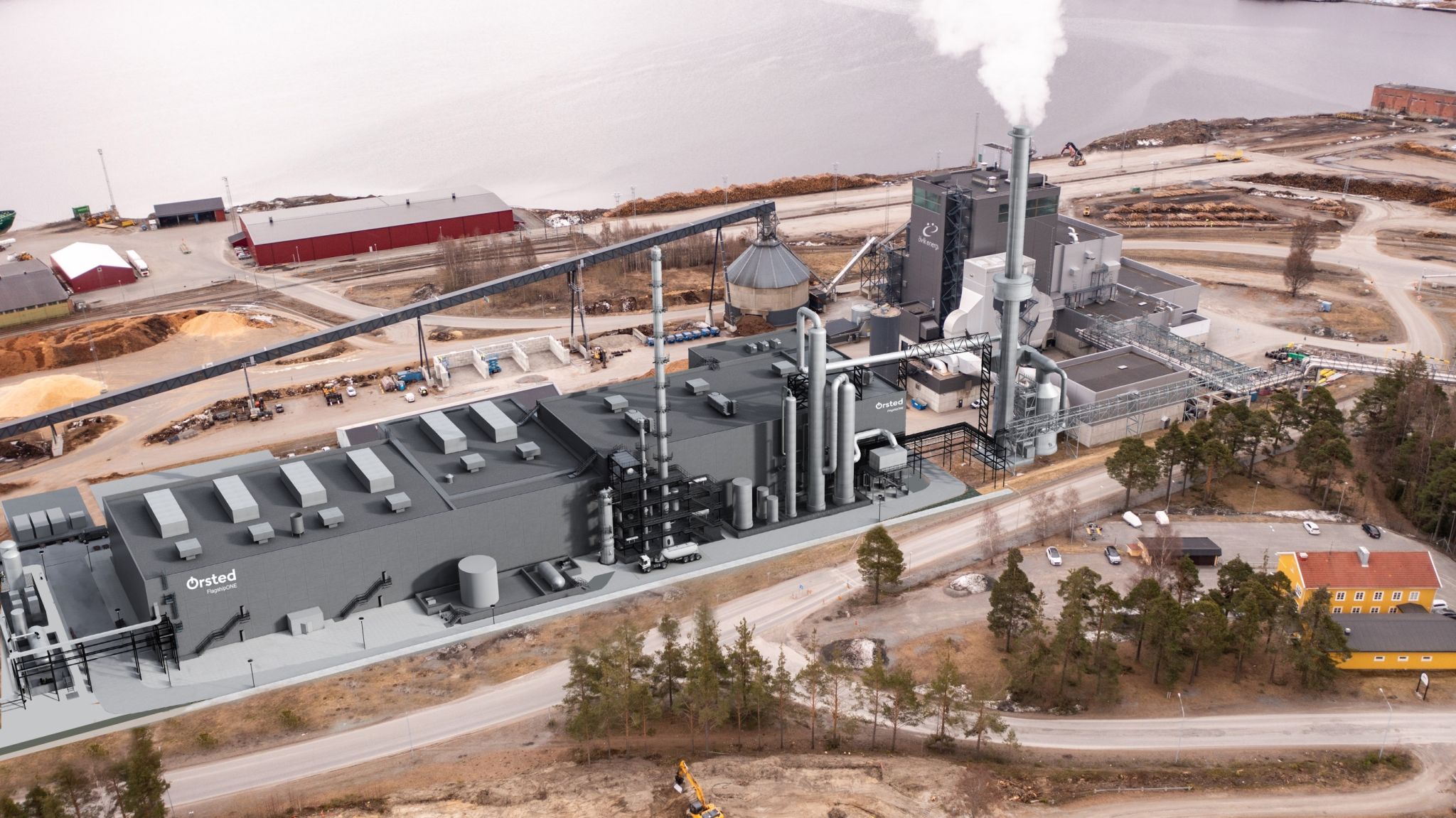Heroes in the field
The first big step to decarbonising shipping is being taken in Northern Sweden
Global shipping accounts for around 3 % of global carbon emissions. This is why the sector has become a focus area for Ørsted as the company expands its presence in Power-to-X across Northern Europe and the US. The first step is Europe’s largest e-methanol project FlagshipONE.

Nestled in the municipality of Örnsköldsvik in Northern Sweden, FlagshipONE is currently under construction and is expected to enter operations in 2025. This pioneering facility will produce up to 55,000 tonnes of e-methanol annually, playing a crucial role in the global shift towards greener shipping.
FlagshipONE represents Ørsted’s inaugural commercial-scale Power-to-X facility and is a pivotal milestone in their journey to establish a leading position in renewable hydrogen and green fuels. Their overarching vision is a world entirely powered by green energy. To achieve this goal, Ørsted advocates for the electrification of as much of our energy consumption as possible. For the cases where electrification is not feasible, the most efficient and sustainable alternatives are the way forward. E-methanol is a key fuel choice for the shipping industry.
Construction started in May 2023, signaling the advent of a new green era in shipping, where large-scale methanol production facilities will supply a constantly growing fleet of methanol-powered vessels. There are 230 dual-fuel ships in operation or on order, 47 % of which were announced in 2023, highlighting the rising interest from shipping companies. This surge in methanol vessel orders aligns with new regulations such as Fuel EU Maritime, which boost the demand for green maritime fuels.
FlagshipONE is strategically located alongside the biomass-fired combined heat and power plant Hörneborgsverket, operated by Övik Energi. This integration shows the potential of leveraging existing infrastructures for renewable energy production. By aligning the e-methanol production process with Hörneborgsverket’s operations, Ørsted demonstrates a sustainable and resource-efficient approach.
Furthermore, the surplus heat generated during the e-methanol production process will be channeled back to Hörneborgsverket, enhancing the plant’s efficiency and contributing to the local district heating supply. This practice exemplifies a circular energy system in which waste is minimised, and resources are fully utilised.
Today, green fuels for shipping carry a price premium compared to their fossil-based counterparts. The industry needs supportive regulation to incentivize demand and to drive the maturation of green fuels on a larger scale and at a faster pace.
On December 1st at COP28, Ørsted announced that the EU-Catalyst Partnership, which consists of the European Commission, Breakthrough Energy Catalyst, and the European Investment Bank, has vowed to support Ørsted’s FlagshipONE project, highlighting the innovative nature of this project and its potential to contribute to the decarbonisation of shipping. This partnership is a game changer in scaling-up e-fuels in Europe, driving costs down and help achieve the EU targets for renewable hydrogen and derived green e-fuels.
Strong public-private initiatives like this partnership are essential to navigate the uncertainties surrounding e-methanol pricing, even from state-of-the-art assets like FlagshipONE – and large-scale offtake appetite is yet to develop. The development of a green energy future hinges on a collaborative effort between industry and policymakers.


